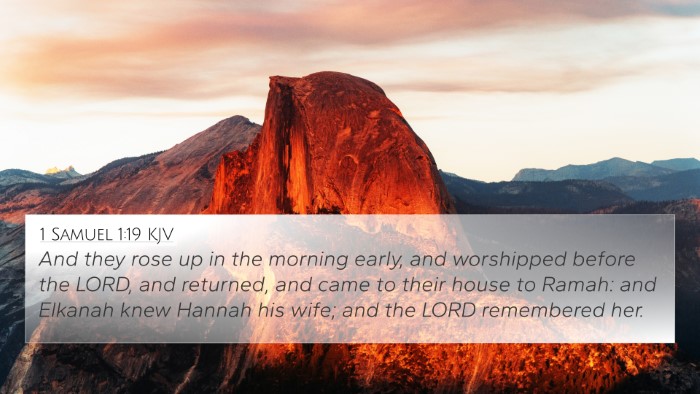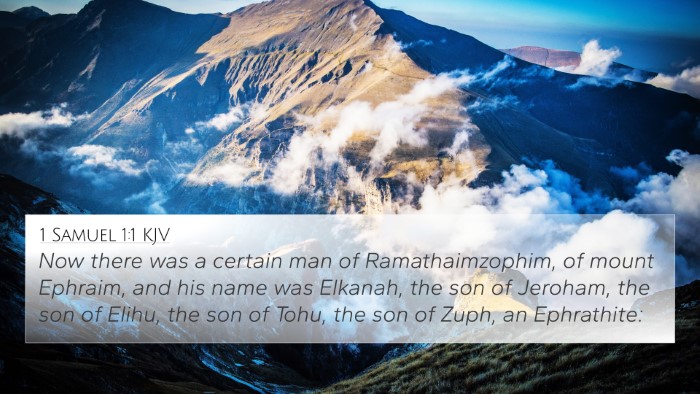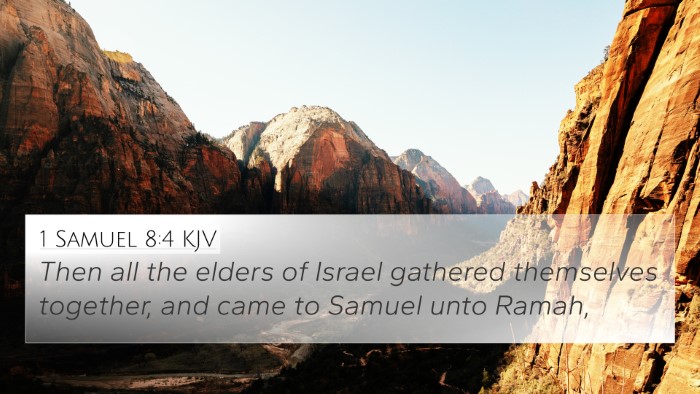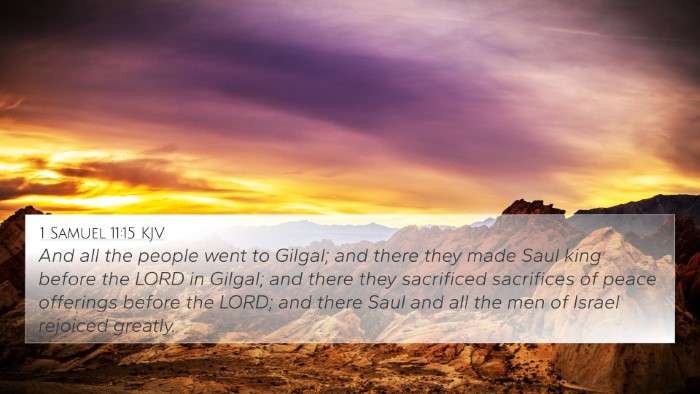Understanding 1 Samuel 7:17
1 Samuel 7:17 states:
“And his return was to Ramah; for there was his house; and there he judged Israel; and there he built an altar unto the Lord.”
This verse provides insight into the life and ministry of the prophet Samuel, highlighting his role as a judge and a key spiritual leader in Israel.
Summary of Meaning
In this verse, we learn about Samuel’s return to his homeland of Ramah after serving the people of Israel. The commentary from Matthew Henry emphasizes that Samuel's role was not merely administrative but also deeply spiritual, pointing to his commitment to God and the community. Albert Barnes notes that building an altar signifies a time of worship and dedication, reflecting Samuel’s understanding of the importance of communion with God. Adam Clarke adds that this act of worship illustrates Samuel's leadership and the need for divine guidance in governance.
Key Themes and Insights
- Spiritual Leadership: Samuel represents a model of leadership grounded in faith, where the leader’s relationship with God is paramount.
- Community and Worship: The act of building an altar shows that worship is central to community life and governance.
- Judgment and Justice: As a judge, Samuel’s decisions are framed within the context of his spiritual commitment to God.
- Divine Guidance: The reference to the altar signifies seeking God's guidance in leadership roles.
Bible Verse Cross-References
Understanding 1 Samuel 7:17 can be enriched through cross-referencing with several biblical texts that relate to its themes:
- Genesis 12:7: "And the Lord appeared unto Abram, and said, Unto thy seed will I give this land: and there builded he an altar unto the Lord, who appeared unto him."
- Exodus 20:24: "An altar of earth thou shalt make unto me, and shalt sacrifice thereon thy burnt offerings, and thy peace offerings, thy sheep, and thine oxen: in all places where I record my name I will come unto thee, and I will bless thee."
- 1 Samuel 3:20: "And all Israel from Dan even to Beer-sheba knew that Samuel was established to be a prophet of the Lord."
- 1 Samuel 10:25: "Then Samuel told the people the manner of the kingdom, and wrote it in a book, and laid it up before the Lord. And Samuel sent all the people away, every one to his house."
- Psalm 78:70-72: "He chose David also his servant, and took him from the sheepfolds: from following the ewes great with young he brought him to feed Jacob his people, and Israel his inheritance. So he fed them according to the integrity of his heart; and guided them by the skillfulness of his hands."
- Acts 13:20-21: "And after that he gave unto them judges about the space of four hundred and fifty years, until Samuel the prophet. And afterward they desired a king: and God gave unto them Saul the son of Cis, a man of the tribe of Benjamin, by the space of forty years."
- Hebrews 11:32: "And what shall I more say? For the time would fail me to tell of Gideon, and of Barak, and of Samson, and of Jephthae; of David also, and Samuel, and of the prophets."
Connections Between Bible Verses
These verses connect Samuel's judgment and his establishing of altars with other significant biblical events, forming a rich inter-Biblical dialogue:
- Old and New Testament Links: The act of building altars resonates with the New Testament, particularly in discussions of worship and sacrifice found in Romans 12:1.
- Comparative Analysis: Examining Samuel and David reveals a continuum of leadership that acknowledges God’s sovereignty, which is critical for understanding the nature of biblical leadership.
- Thematic Connections: Both the altar and the judicial role serve to show God’s involvement in communal governance, a theme prevalent throughout Scripture.
Tools for Bible Cross-Referencing
Utilizing tools for Bible cross-referencing enhances study and understanding:
- Bible Concordance: A valuable resource for finding verses related to specific keywords or themes.
- Bible Cross-Reference Guide: Such guides help to identify related scriptures across different contexts.
- Cross-Reference Bible Study: Engaging in this form of study fosters a deeper understanding of scriptural interconnections.
Conclusion
The analysis of 1 Samuel 7:17 through the lenses of various public domain commentaries reveals Samuel's pivotal role as a leader in Israel, emphasizing the importance of spiritual authority and dedicated worship. By linking this verse with others, we navigate a broader theological landscape that underscores God’s continuous involvement in the governance and faith of His people.












